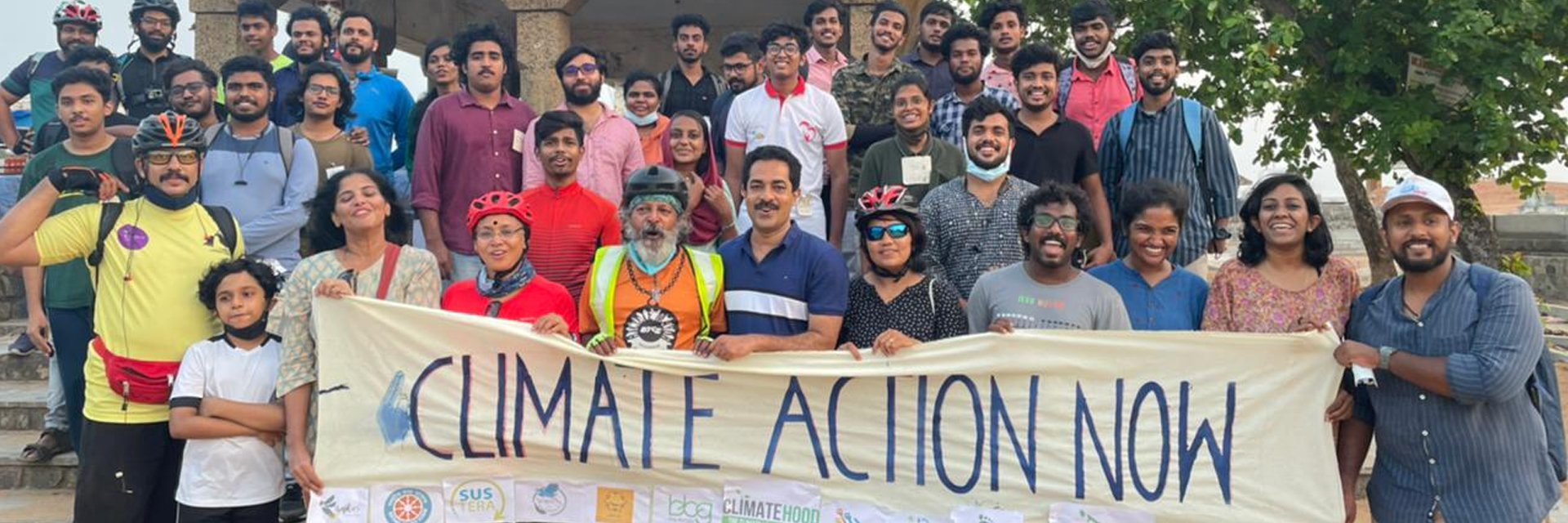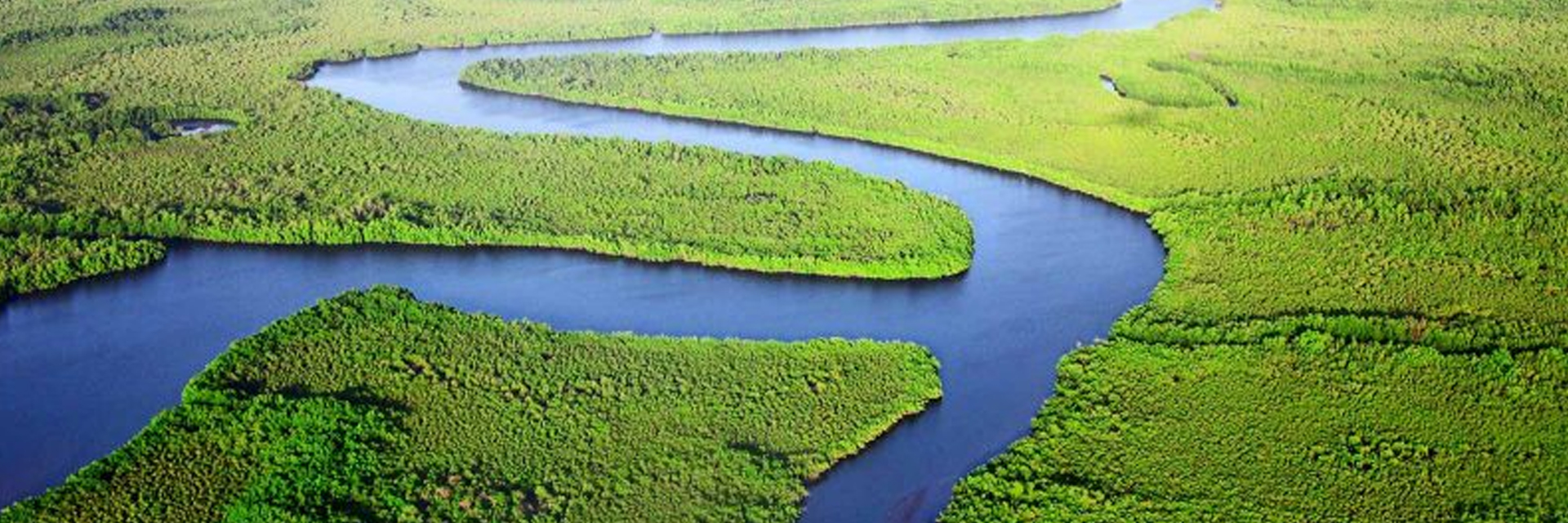(May 15, 2022) Back in 2012, a 19-year-old student based in Thiruvananthapuram started an NGO named SARSAS (Save A Rupee Spread a Smile), which aimed at encouraging charity and social work in youngsters. Almost a decade later, environmentalist Sanju was selected as one of the young climate leaders from India by the United Nations as part of their campaign ‘We the Change’, for his exceptional work, in 2021.
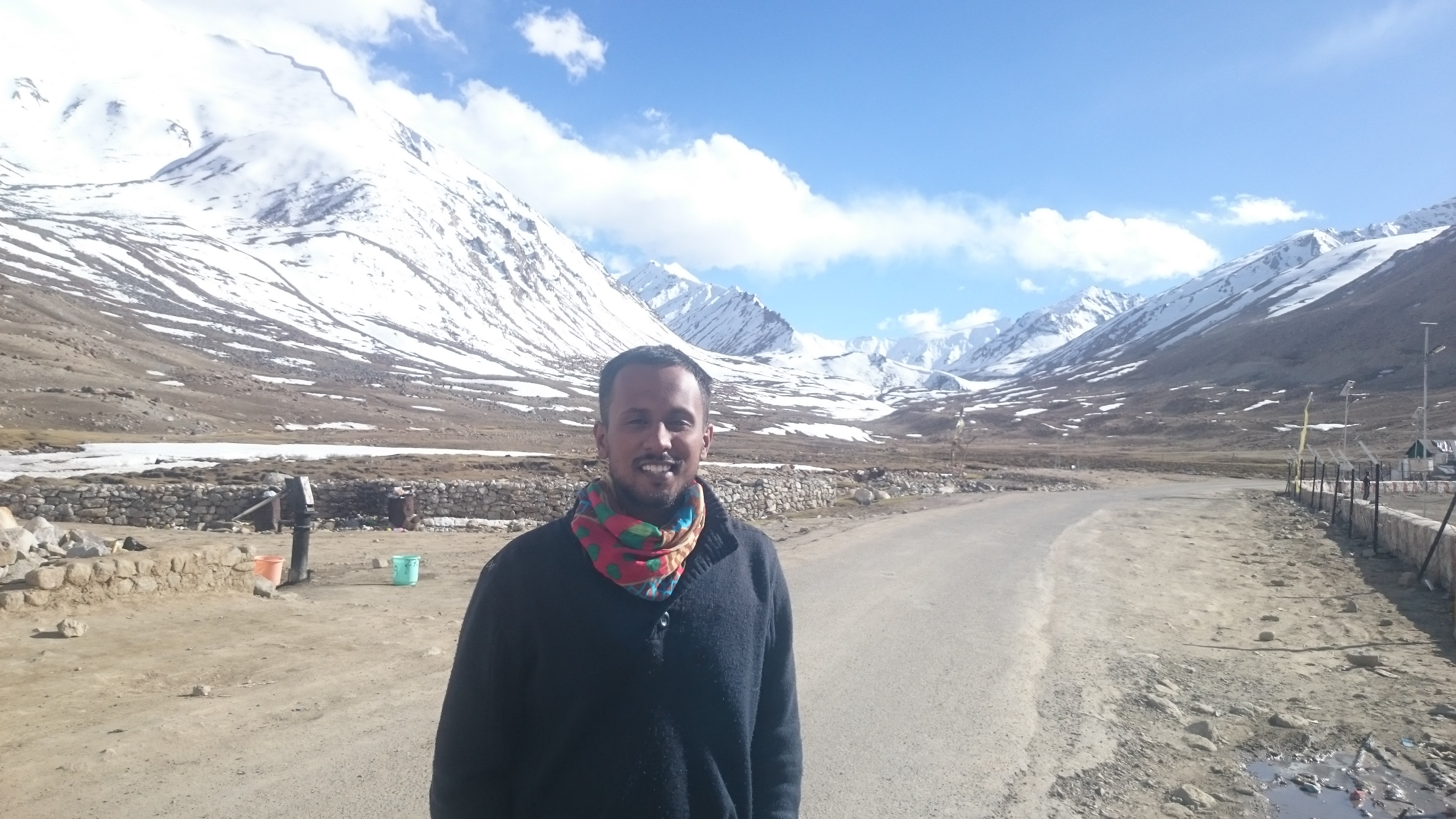
Sanju Soman
Currently, Sanju is tirelessly working on several environmental issues through his NGO Sustera Foundation, which drives collective action through capacity building training, campaigns and policy dialogues to equip communities to adapt better to climate disasters and climate change. “Change should happen now and at a very fast rate,” advocates Sanju, during an interview with Global Indian, adding, “During my college days, when I was working towards initiating SARSAS, I realised that there are a lot of youngsters who are ready to do social work but they are unable to do so, due to the lack of a proper platform.”
View this post on Instagram
Some of the major programmes that Sanju initiated in the last ten years are rainwater harvesting project in Malayinkeezhu, a drought-prone region in Kerala and Trivandrum, an annual charity run to raise funds for financially needy patients suffering from critical diseases. The environmentalist also undertook a 10-day cycling expedition, covering the Western Ghats from Mumbai to Bengaluru in early 2015.
A green panther
A native of Adoor in Kerala, Sanju grew up in Saudi Arabia, where his father worked as a laboratory technician. Although he was attending an excellent school, Sanju would eagerly wait for vacation time, when he would get to come to India. “Saudi back in the day had many restrictions. I was the only child, and didn’t have many friends. So, I felt lonely some times. However, back in India, I had several friends. My grandparents lived in a beautiful home, and I remember as a child I would visit paddy field with my grandfather, and loved exploring the village,” shares the environmentalist.
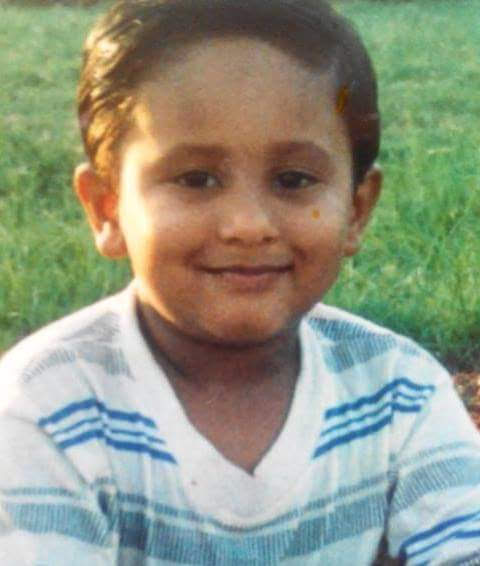

A childhood image of Sanju
His love for Kerala made him shift his base soon after finishing his class X in Saudi. “My last two years of schooling were awesome. I made so many friends, and was even involved the co-curricular activities at school,” says Sanju, who describes himself as an above average student. After finishing school, while other students were confused whether to pursue engineering or medicine, Sanju chose to study human psychology from SN College in Thiruvananthapuram.
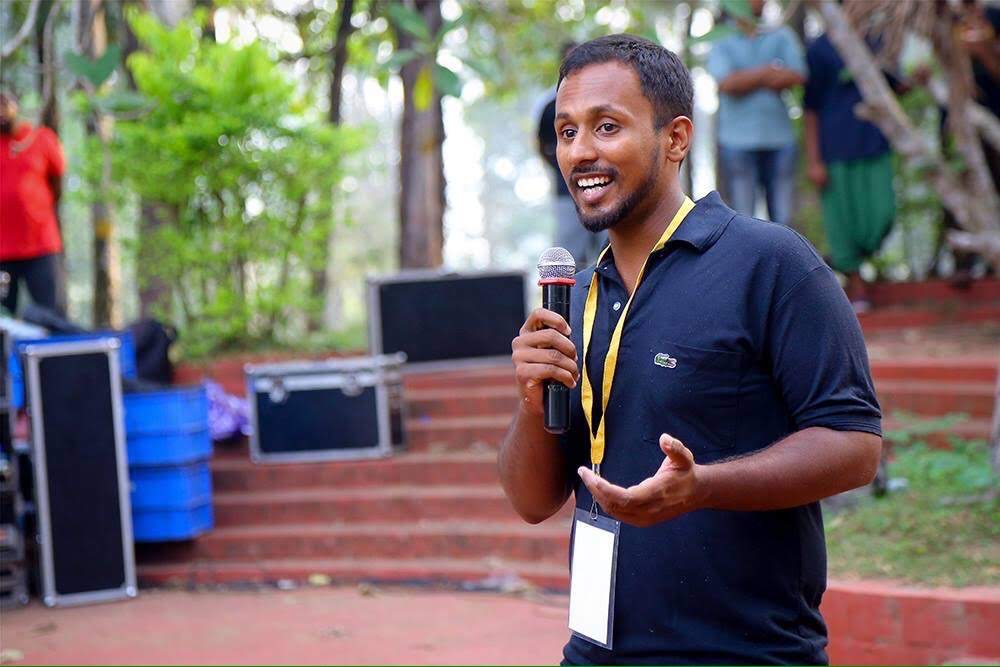

Sanju during a workshop
However, it was during his graduation years that Sanju started getting involved in various voluntary organisations. “I started SARSAS in 2013, which turned out to be one of the largest youth-led NGOs in Trivandrum. The idea was to create a space for young people where they can share their thoughts and discuss about varied social issues, without any hesitations or fear of being judged,” shares the nature activist. Through their efforts, SARSAS raised around Rs 70 lakh over five years to support cancer patients, who were from vulnerable communities. The team also launched several social projects, which involved about 300 to 500 volunteers.
Creating a “model wetland village”
During his post-graduation in Climate Change and Sustainability Studies at the Tata Institute of Social Studies (TISS), the environmentalist joined the Ladakh Ecological Development Group (LEDeG) as a Research Intern in 2015, where he worked for two months. After he came back from Ladakh, Sanju joined the Ashoka Trust for Research in Ecology and the Environment (ATREE) and led the Habitat learning project in 2016. There he trained teachers and students of government schools near the Vembanad Lake in Kerala for a period of two years.
View this post on Instagram
“Vembanad lake is the second largest Ramsar wetland site in India and also one of the most diverse and flood-prone regions in Kerala. Realising the importance of the lake, we engaged with the villagers in teaching the students and teachers about climate change and the importance of habitat conservation with a focus on wetlands, especially the one that they live by,” Sanju explains. This work made him one of the 58 Global school ambassadors from across the world, chosen by the United Nations Sustainable Development Solutions Network (UN-SDSN) to scale up SDG education in schools.
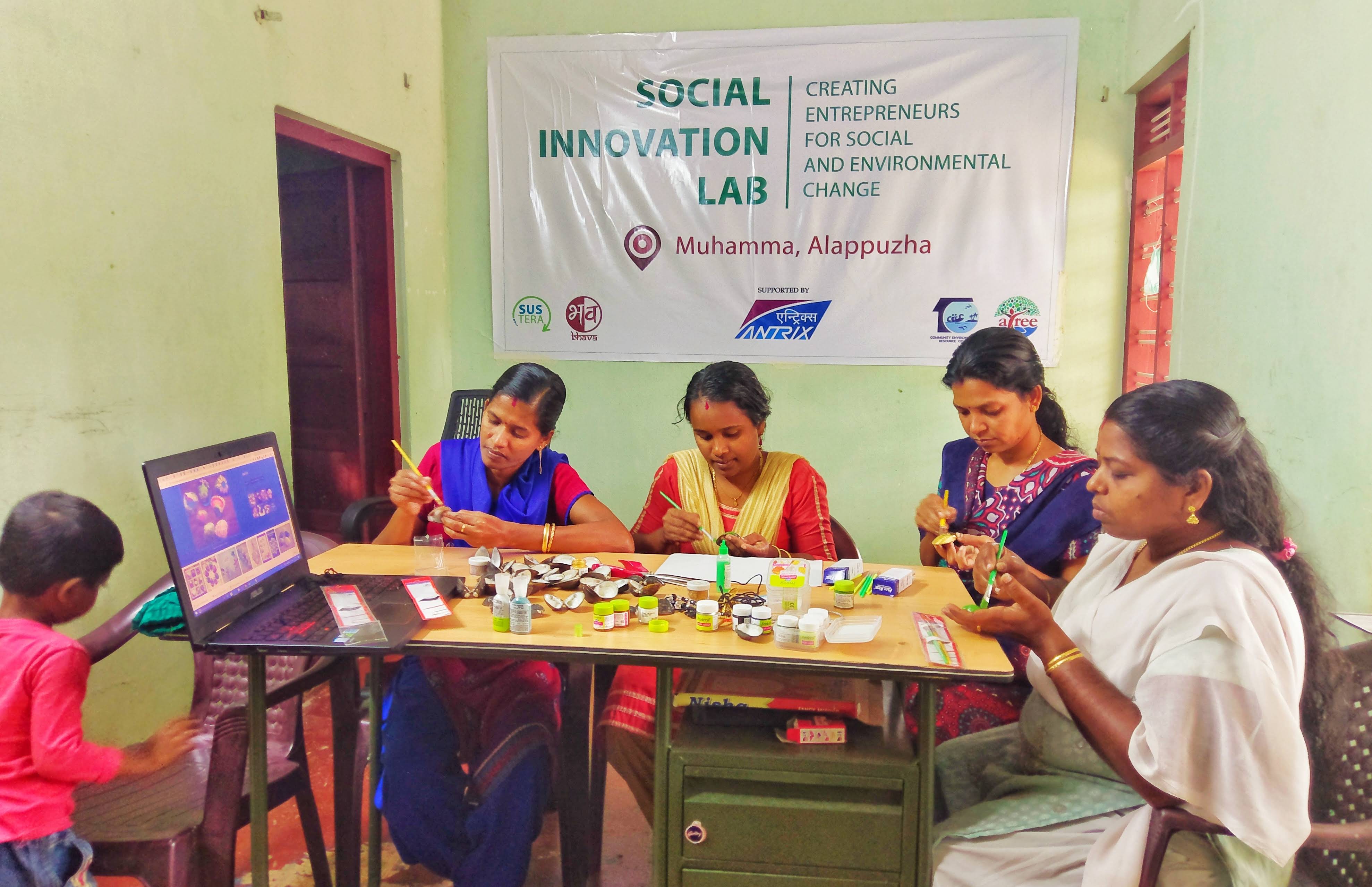

Women of Muhamma village working at the social innovation lab
It was around this time that Sanju started working on the concept of making a wetland village sustainable and self-sufficient. “Muhamma is a small village which is also part of the Vembanad-Kol Ramsar wetland site. While I was attending a panchayat meeting there, I learnt about the struggles of the fishing community people residing there, especially the women. They were talking about how the increasing plastic pollution was affecting their livelihoods. So, we developed a three-year plan to make the panchayat energy efficient, plastic-free, and also to improve the livelihood of people,” the environmentalist says.
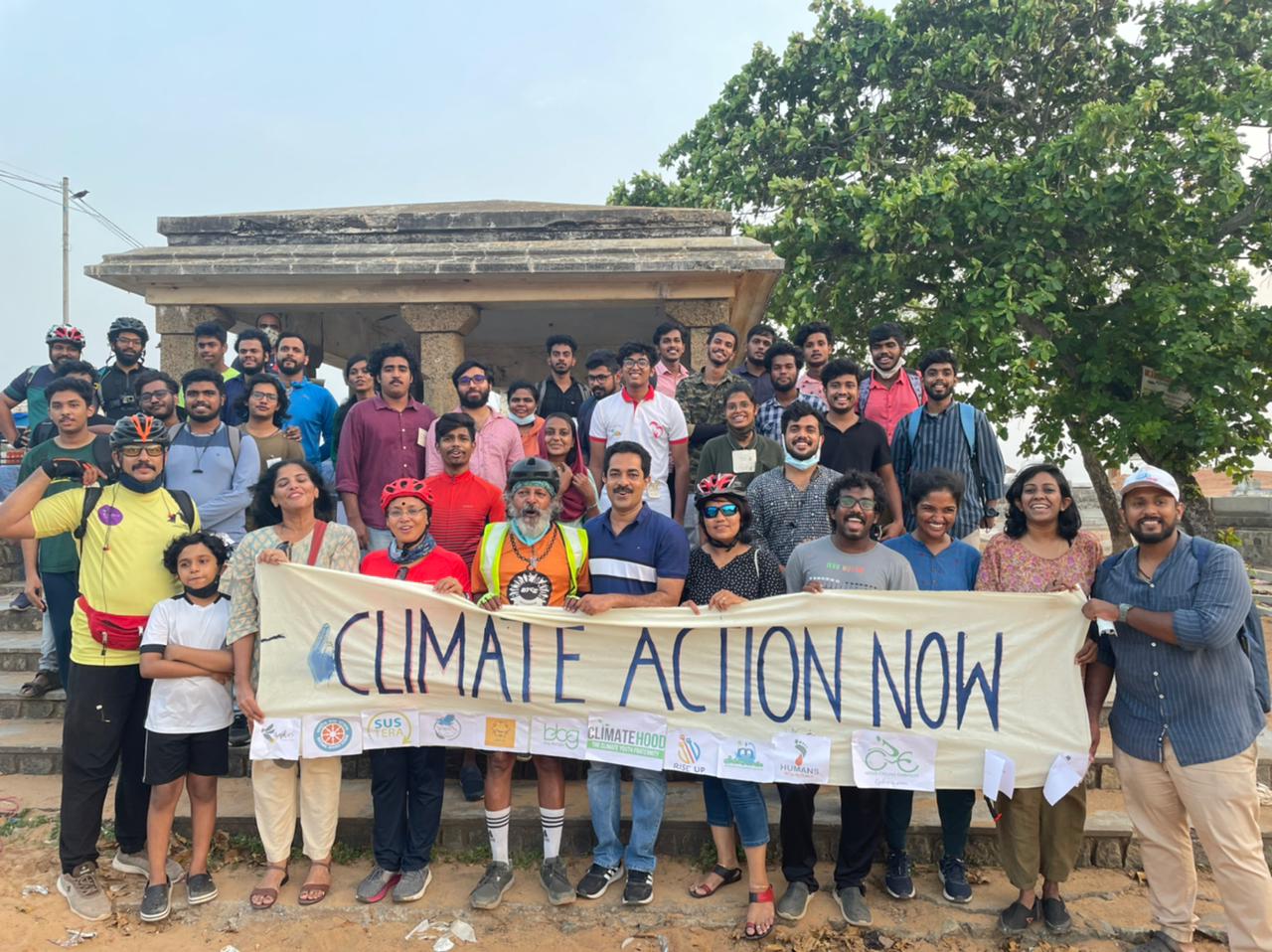

Sanju, along with several other environmentalists. during an event
The programme was affected due to the COVID situation in the country, and the tasks are still a work-in-progress. “There have been drastic changes like reduced plastic consumption, increase in tree cover in the area and recovery of canals,” he says. To empower the ladies in the area, Sanju also set up a social innovation lab, through which Sustera trained over 150 women from the fishing communities on cloth upcycling. He was also part of an initiative to make Muhamma the first synthetic sanitary napkin-free village.
The road ahead
Along with his friends, Sanju started a social enterprise named BHAVA in 2018 to support those women making upcycled goods to sell their products in the market. They succeeded in providing a minimum wage of Rs 5,000 per month to around 40 women through this as an additional income. The environmentalist also launched one of the largest upcycling efforts in Kerala and converted around 30,000 kg of cloth waste into usable products.
View this post on Instagram
Simultaneously, Sanju founded Sustera Foundation, an NGO, to train youngsters in climate action, capacity building of local self-government institutions, and supporting climate entrepreneurs. The NGO has mentored over 70 entrepreneur teams over the past few years.
View this post on Instagram
Currently residing in London with his wife Sonu, Sanju works with World Institute of Sustainable Energy. His research centers on understanding and facilitating multi-level climate governance in Kerala. “I met Sonu while we were working at the ATREE and our ideologies matched. We didn’t want an extravagant wedding. Instead, we used the money kept for the wedding to help people in need during the pandemic. We also used some money to develop a Miyawaki forest in a small piece of land,” says the environmentalist, who is also managing Sustera with its new initiatives in Kerala like creating an ecosystem for green enterprises and eco-restoration.

